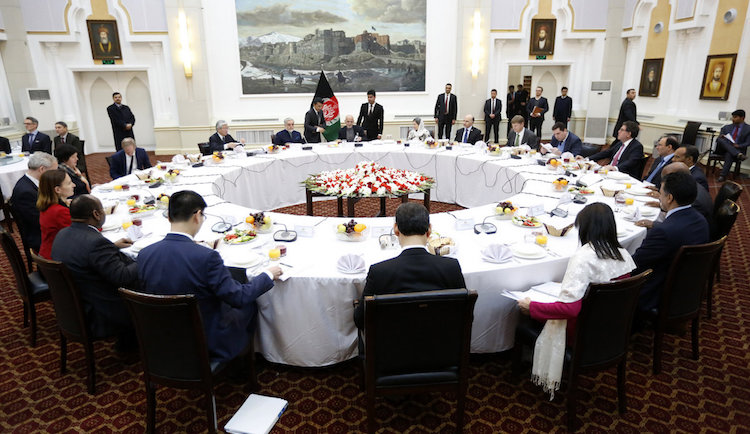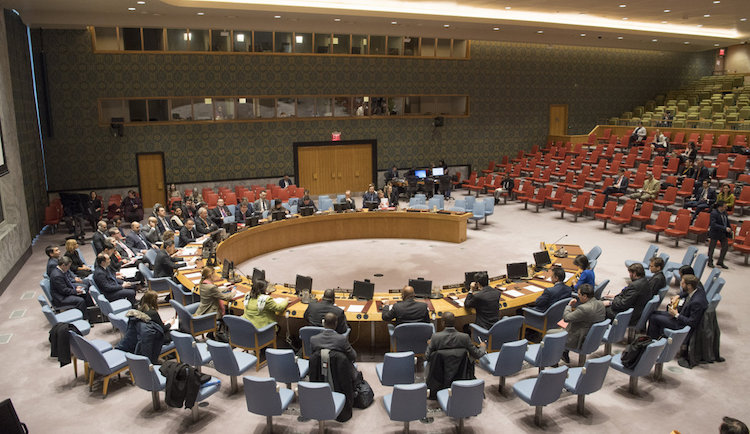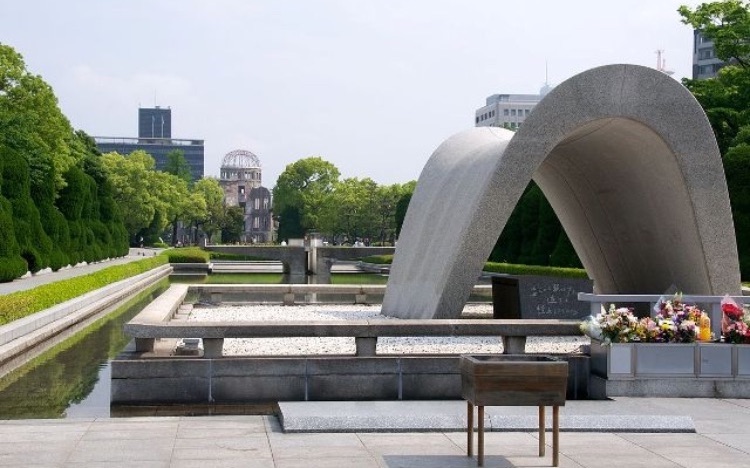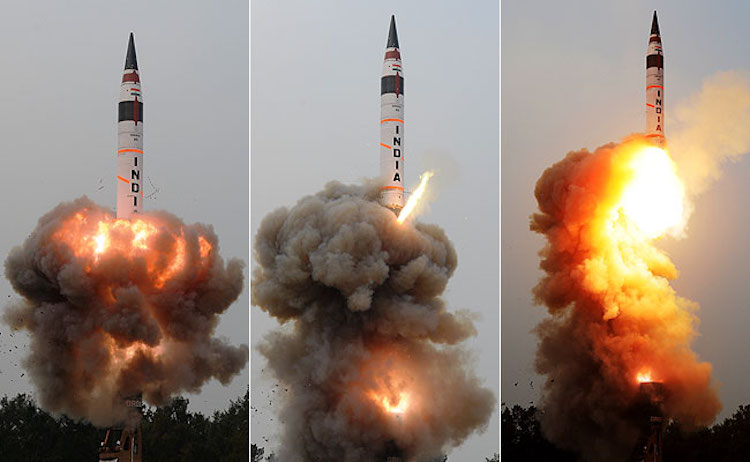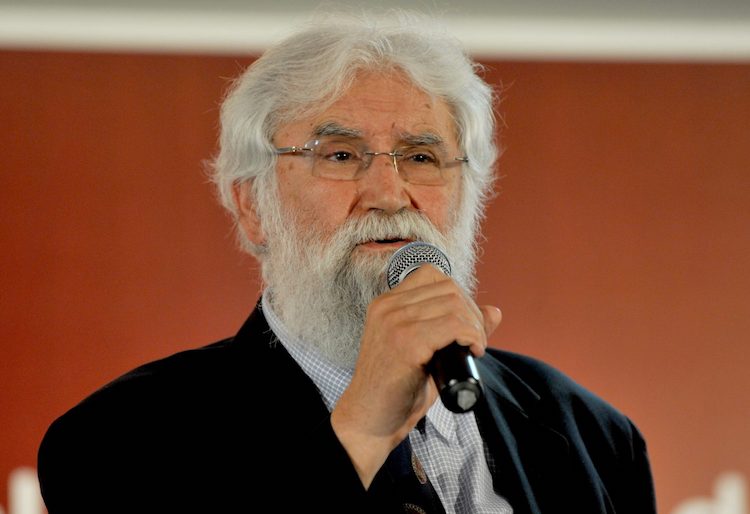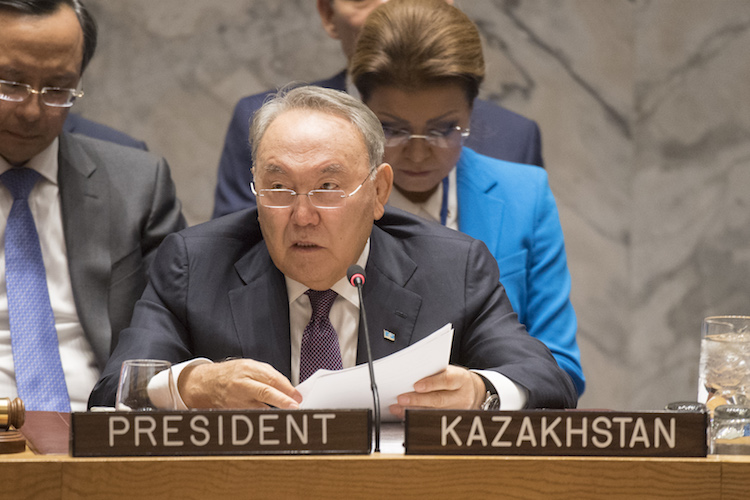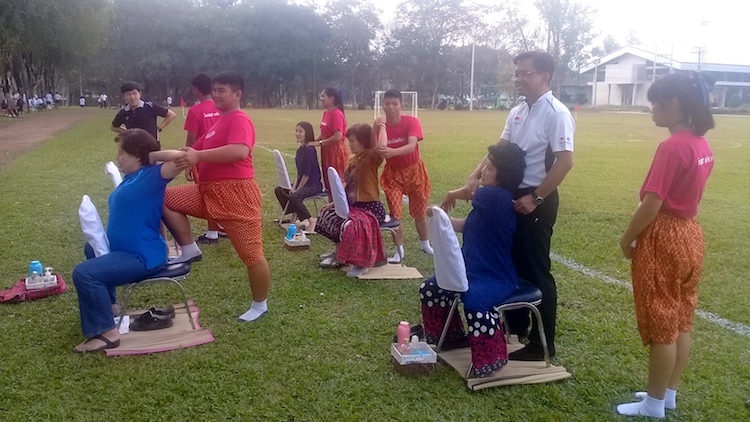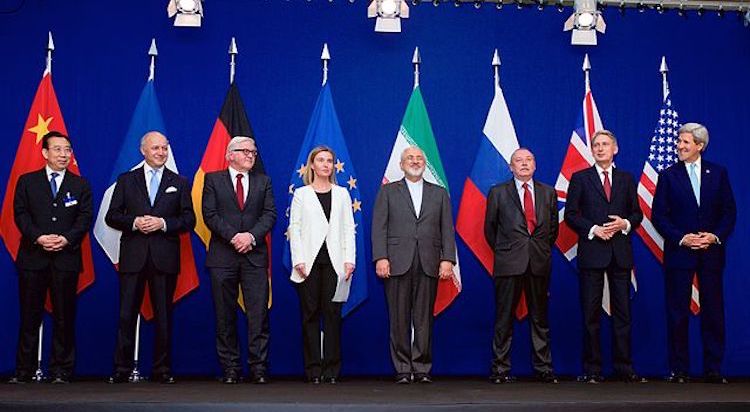By J Nastranis NEW YORK | KABUL (IDN) – For the first time since 2010, the UN Security Council undertook a visit to Afghanistan to reiterate the Council’s support for the Government and people of Afghanistan and their efforts to restore peace, stability and progress to the country. The visit from January 13-15 was organized […]
Building Regional Partnership in Afghanistan and Central Asia
By António Guterres, UN Secretary-General Following are extensive excerpts from UN Secretary-General António Guterres’ remarks to the Security Council debate on building regional partnership in Afghanistan and Central Asia to link security and development, on January 19. The debate was convened by the Council’s Kazakh presidency for the month of January. – The Editor. UNITED […]
ICAN Chief Shows Japan the Way From a Blind Alley
By Katsuhiro Asagiri TOKYO (IDN) – “I wish for all states, in particular Japan, to join the treaty on the prohibition of nuclear weapons. No more hibakusha,” wrote Beatrice Fihn, Executive Director of the International Campaign to Abolish Nuclear Weapons (ICAN), on a message board at the opening of an exhibition on January 12 at […]
Successful Test Firing of India’s Agni-5 Evokes No Fury
By Kalinga Seneviratne BANGKOK (IDN) – The successful launch of the nuclear-capable intercontinental ballistic missile (ICBM) Agni-5 on January 18 has hardly been noticed in Asia. The western media however have given it coverage focusing on India’s ability now to strike major Chinese cities including Beijing and Shanghai. This partly adulatory coverage is in sharp […]
The Earth’s Future Will Not Come from Heaven
Viewpoint by Leonardo Boff The author is a Brazilian liberation theologian, author and campaigner for the rights of the poor and disadvantaged. He is a professor of theology, ethics and philosophy at universities all over the world and a member of the Earth Charter Commission. This article is a slightly modified version of an article […]
Kazakh President Offers Astana as Venue for Disarmament Negotiations with North Korea
By Santo D. Banerjee UNITED NATIONS (IDN) – In the run up to the fiftieth anniversary of the UN inviting nuclear haves and have-nots to sign the Non-Proliferation Treaty (NPT) on July 1, 1968, Kazakhstan has proposed a set of six measures aimed at the non-proliferation of weapons of mass destruction, and offered a platform […]
Mounting Political Tensions Around Eritrea
By Klara Smits BRUSSELS (IDN) – The political situation around Eritrea is evolving rapidly, in both the Horn of Africa and Europe. Sudan has closed the border with Eritrea and deployed troops amid rising tensions while in the Netherlands, Eritrea’s top diplomat has been declared ‘persona non grata’ over the country’s practice of enforcing a […]
Thai Doctor Creating Multi-Faceted Approach to Sustainable Development
By Kalinga Seneviratne CHANTABURI, Thailand (IDN) – A passionate, socially conscious doctor in this rural farming community in the north-east of Thailand is working with a school for marginalised children, supported by a foundation set up by Princess Maha Chakri Sirindhorn, the second daughter of late King Bhumibol who died in October 2016. The school […]
Iran Nuclear Deal Is Menaced by Trump’s Cynical Gambit
By Kelsey Davenport The writer is director for nonproliferation policy at the Arms Control Association, where it first appeared on 17 January. WASHINGTON, D.C. (IDN-INPS) – President Donald Trump’s Jan. 12 decision to waive sanctions on Iran keeps the United States in compliance – for the time being – with its obligations under the multilateral […]
Money is Not Wealth: Cryptos vs. Fiats!
By Hazel Henderson* JACKSONVILLE, Florida (IDN) – After a few drinks, most bankers, economists and investors will admit that money is not wealth. Like inches and centimetres, money is a metric, and it used for tracking real wealth: human ingenuity and technological productivity interacting with natural resources and biodiversity undergirding all human societies along with the […]

